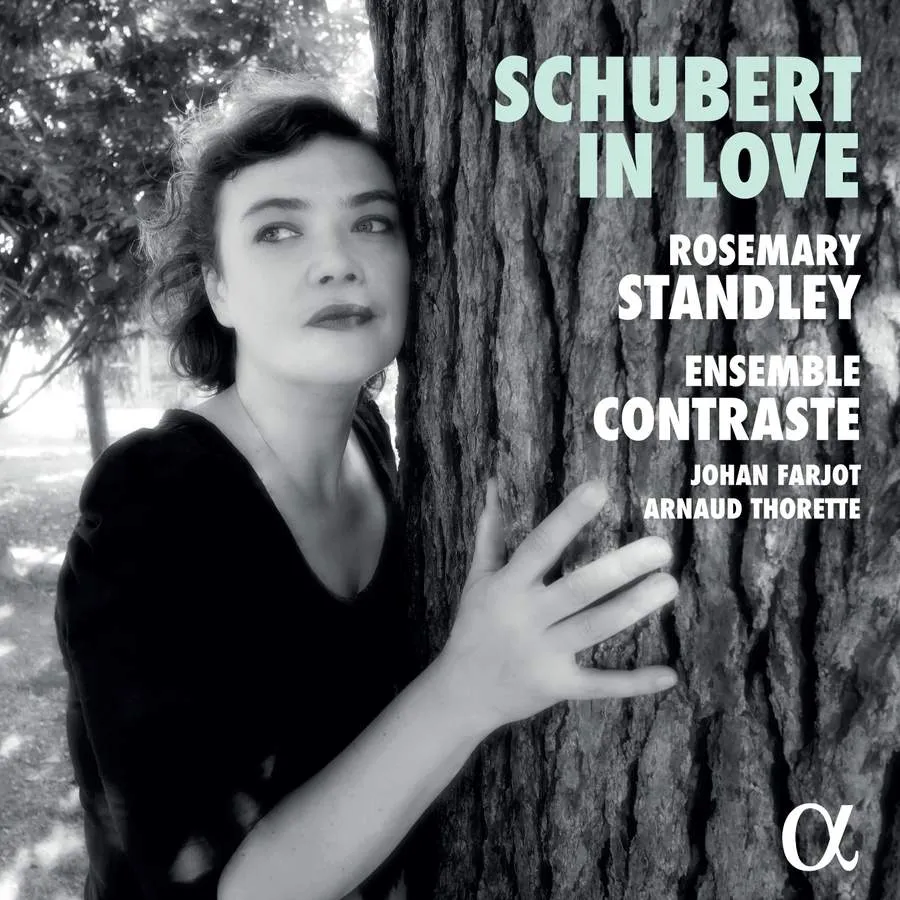
Schubert Schubert in Love – Lieder and Instrumental Works Rosemary Standley, Sandrine Piau (soprano), Arnaud Thorette (violin), Johan Farjot (piano); Ensemble Contraste Alpha Classics ALPHA 418 53:21 mins
This recital recalls the concept of the 19th-century miscellany concert, mixing songs, improvisation and solo piano works, here all arranged by Johan Farjot for viola, cello, contrabass, piano, (digital) percussion, guitar and trumpet, and sung mostly by the folk singer Rosemary Standley.
The result will upset purists. Indeed, Standley’s German – approximate at best, incomprehensible at worst – upset me, since individual words mean little to her and she delivers every song evenly and dispassionately. There’s no heart on sleeve here.
And yet, the overall effect is unexpectedly pleasing – Schubert’s music in a jazz-inspired reimagining. The textured, varied percussion, the not-too-sycophantic arrangements (bar the odd jarring harmonisation) and the improvisatory freedom are all built around the excellent scaffold of Schubert’s originals. The improvisation on the Arpeggione Sonata is enormous fun and, frankly, more interesting than the original. ‘Trockne Blumen’, from Die Schöne Müllerin, becomes a joyous romp which had my foot tapping. ‘Auf dem Wasser zu singen’ and ‘Ave Maria’ time-travel between Schubert’s original and a mid-20th century, off-beat swing.
Be warned – the styles are jumbled together, familiar and much-loved music morphs into something new and occasionally strange, including a jaw-droppingly unexpected Sandrine Piau duetting with Standley in an arrangement of Schubert’s popular ‘Heidenröslein’. Expression, here, comes through notational and textural freedom, rather than the traditional precise nuancing of lines and words. It’s not predictable, pious or perfect, but it’s imaginative. Leave your usual expectations behind and enjoy.
Natasha Loges